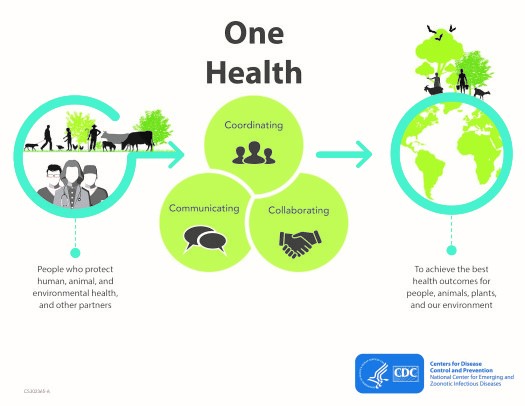CURRENT AFFAIRS
Get the most updated and recent current affair content on Padhaikaro.com
‘One Health’ consortium: Department of Biotechnology
- IAS NEXT, Lucknow
- 18, Oct 2021

The Department of Biotechnology has launched a ‘One Health’ consortium. This is the First ‘One Health’ project of the DBT.
About the project:
- It envisages carrying out surveillance of important bacterial, viral and parasitic infections of zoonotic as well as transboundary pathogens in the country.
- The project also looks into use of existing diagnostic tests and development of additional methodologies for surveillance and understanding the spread of emerging diseases.
Composition:
The ‘One Health Consortium’ consists of 27 organisations led by DBT-National Institute of Animal Biotechnology, Hyderabad.
Need for and significance of ‘One Health’ approach:
The Covid-19 pandemic showed the relevance of ‘One Health’ principles in the governance of infectious diseases, specially efforts to prevent and contain zoonotic diseases throughout the world.
- Therefore, there is a need for a holistic approach to understand the health of human, animals and wildlife to minimise the damage caused by future pandemics.
What is the OneHealth concept?
- One Health is the collaborative efforts of multiple disciplines working locally, nationally, and globally, to attain optimal health for people, animals and our environment, as defined by the One Health Initiative Task Force.
- One Health model facilitates interdisciplinary approach in disease control so as to control emerging and existing zoonotic threats.
What are zoonotic diseases?
The word ‘Zoonosis’ (Pleural: Zoonoses) was introduced by Rudolf Virchow in 1880 to include collectively the diseases shared in nature by man and animals.
- Later WHO in 1959 defined that Zoonoses are those diseases and infections which are naturally transmitted between vertebrate animals and man.
- Zoonoses may be bacterial, viral, or parasitic, or may involve unconventional agents.
Concerns:
As well as being a public health problem, many of the major zoonotic diseases prevent the efficient production of food of animal origin and create obstacles to international trade in animal products.
India’s framework, plans:
India’s ‘One Health’ vision derives its blueprint from the agreement between the tripartite-plus alliance comprising the Food and Agriculture Organization of the United Nations (FAO), the World Organisation for Animal Health (OIE), the World Health Organization (WHO) and the United Nations Environment Programme (UNEP) — a global initiative supported by the United Nations Children’s Fund (UNICEF) and the World Bank under the overarching goal of contributing to ‘One World, One Health’.
- In keeping with the long-term objectives, India established a National Standing Committee on Zoonoses as far back as the 1980s.
- This year, funds were sanctioned for setting up a ‘Centre for One Health’ at Nagpur.
- The Department of Animal Husbandry and Dairying (DAHD) has launched several schemes to mitigate the prevalence of animal diseases since 2015, with a funding pattern along the lines of 60:40 (Centre: State); 90:10 for the Northeastern States, and 100% funding for Union Territories.
